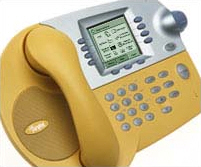Project History
The code that now makes up the sipXecs project was first contributed to SIPfoundry by Pingtel Corp in 2004 as the sipXpbx open source project (Pingtel organized and funded the creation of SIPfoundry, but it is an independent legal not-for-profit corporation). The PBX code had been under development as the Pingtel SIPxchange product for a couple of years at that point, and was itself an extension of code from the Pingtel Expressa phone before that (the Pingtel Expressa phone was one of the phones that made the very first successful SIP calls between implementations from different vendors). For some time after that initial release, development of the Pingtel commercial product continued in parallel with the sipXpbx open source code base, with contributions continuing from the commercial version to the open source.
Over time, the sipXpbx open source project gained attention from both users and developers. A number of active developers from outside Pingtel began contributing heavily, especially in those parts of the code base that were most useful to developers of SIP User Agents (phones and other endpoints). Because of the licensing structure that was used at that time, it was sometimes difficult to incorporate those changes into the commercial version at the same time, so the two code bases began to diverge - which in turn increased the complexity of creating and especially testing both the open source (sipXpbx) and commercial (SIPxchange) versions of the product.
In the spring of 2007, we decided to change the project structure and licensing to reduce complexity and potential usage conflicts. Pingtel made a new contribution of code to SIPfoundry based on its previous commercial version to create the sipXecs project (see the change announcement).
Many of the developers who were focused on User Agents continued with those parts of the original code base as the sipXtapi project, and that project is very much alive and well.
The name of the project
Note that nowhere in any of the above did the project name sipX appear. The name sipX has been used as a sort of shorthand since the beginning, but is actually ambiguous (since there are two independent projects that both use that name prefix).
When creating documentation, please try to use the real name of the project: sipXecs (pronounced sip-eks-ee cee es).
Commercial sponsor history
As noted above, this project began with contributions from Pingtel. Pingtel began life focused on the development of VoIP phones, and quickly narrowed that focus to SIP phones. The Pingtel Expressa phone was considered one of the best SIP phones in the business at one time, and nearly every SIP interoperability lab had at least one for testing (some probably still do). It was, alas, not a commercial success, and Pingtel eventually shifted its focus to the SIPxchange PBX product and the accompanying open source projects as described above.
In July of 2007, Pingtel was acquired by Bluesocket, which in turn sold all the assets of Pingtel to Nortel in August of 2008. Nortel had already been selling a product (Software Communications System - SCS) based on code from the sipXecs project for some time. When Nortel bought the assets of Pingtel, they also hired all of the developers from Bluesocket.
Nortel greatly expanded the developer base and the features of both its SCS product and the sipXecs open source project. In January of 2009, Nortel declared bankruptcy; while in bankruptcy, development and contributions to the open source project continued, and in December of 2009, the commercial product was acquired by Avaya.
In March 0f 2010, Avaya stopped contributing to the source code to the community. Members of the community came together (including several of the original Pingtel employees under the company name eZuce, Inc.) and are now maintaining the project.
